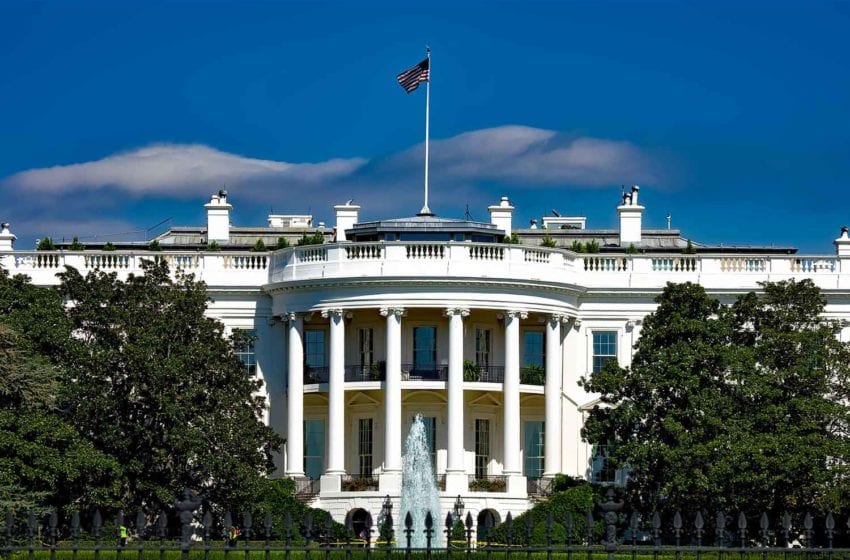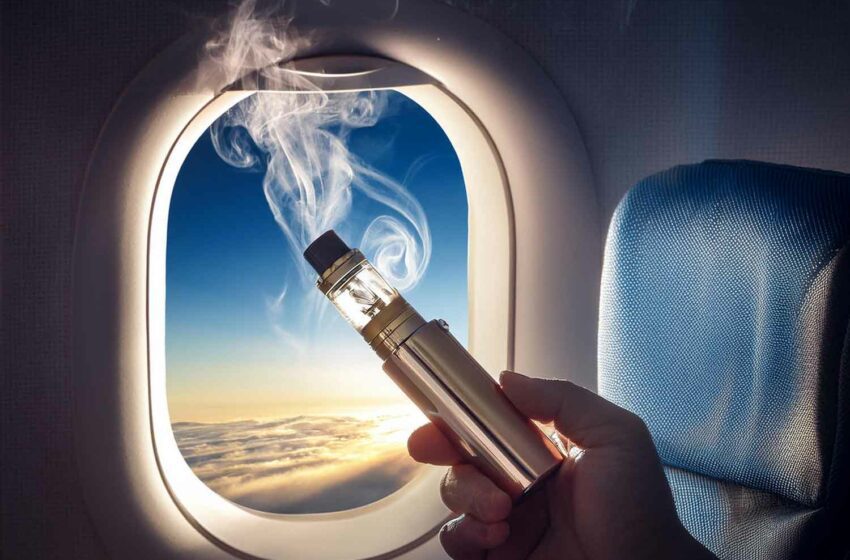Tobacco companies demand more transparency and accountability in the FCTC’s policymaking processes.
By Stefanie Rossel
From Nov. 7–12, the World Health Organization’s (WHO) Framework Convention on Tobacco Control (FCTC) will have its seventh session of the Conference of the Parties (COP7), this time in Noida, New Delhi, India. It is highly likely that the gathering, like the two previous events, will take place in the absence of the public and the media.
For anyone related to the tobacco industry in any way, attending COP sessions as public observers has always been challenging, as participants in a recent panel discussion related during a Women In Tobacco meeting at Japan Tobacco International’s (JTI) new headquarters in Geneva. The panelists shared their experience of queuing in Durban, South Africa, and Punta del Este, Uruguay—host cities to former COP events—from the small hours to obtain one of the 30 passes reserved for the public. While sitting in the public gallery did not mean they were allowed to actively participate in COP proceedings, they at least had the opportunity to closely observe the process, which ensured a certain degree of transparency and accountability. Once those who had snatched a pass were allowed to enter, however, they encountered a hostile atmosphere: One of the panelists, for example, was confronted with numerous posters showing her portrait with the headline “Beware! The merchants of death are here” (also see “The impact,” page xx).
At the last two COPs in Seoul, South Korea, (2012) and Moscow (2014), as well as at the session on the WHO’s Protocol to Eliminate Illicit Trade in Tobacco Products in between, all lining up was in vain. The media, legitimate businesses and experts were thrown out immediately after the opening remarks and were prevented from observing discussions throughout the entire event. Their exclusion was heavily criticized, and not only by tobacco industry members. Critics argued that the lack of transparency would corrupt policymaking processes and that the FCTC’s secretive course undermined its legitimacy as it attempted to explore serious regulatory issues.
To better understand FCTC proceedings, a closer look at the organization and its development might help. The FCTC is an intergovernmental contract, covering every aspect of the tobacco supply chain, that was adopted in 2003 and became internationally binding law in 2005. By now, 180 governments—or “parties”—have ratified it. The COPs are part of the “treaty machinery,” as a panelist dubbed it, meant to work on, interpret and define the FCTC’s general, broadly formulated articles and thus provide more specific guidance for the governments, which will then transpose the treaty into national law.
The COPs are the key decision-makers; the sessions comprise the parties who have ratified the FCTC, as well as intergovernmental and nongovernmental organizations accredited as observers. This latter group of about 200 people consists exclusively of tobacco control lobbying groups who can actively participate; during the Moscow meeting, it included organizations such as the Framework Convention Alliance, Corporate Accountability International, the International Network of Women Against Tobacco and the World Self-Medication Industry. In a statement published after the Moscow session, JTI criticized the huge disparity between the representation of tobacco control lobbyists and members of the public—in contrast to those 30 places shared by the media, legitimate businesses and experts, the 200 tobacco control lobbyists also sat in on many delegations.
JTI said the sessions had been “hijacked by special-interest groups.” It also remarked upon the worrying culture of bullying that had been allowed to develop at the COP.
The nature of the sessions has changed over time, too, as one panelist pointed out: The delegates representing the 180 signatories to the FCTC, she said, are “professional COP-goers,” the majority of whom are at the technical divisions of ministries of health. This is increasingly becoming an issue because the topics of the sessions have moved away from health issues to more complex and varied matters, such as tax (Article 6), illicit trade (Article 15) and agricultural policies (Articles 17 and 18)—topics in which health ministry technical experts have limited expertise and that fall into the competencies of finance, customs and agricultural ministries.
Questionable procedures
The exclusion of the tobacco industry from the COP sessions is largely based on the FCTC’s Article 5.3, which states that “[i]n setting and implementing their public health policies with respect to tobacco control, parties shall act to protect these policies from commercial and other vested interests of the tobacco industry in accordance with national law.” By also banning the public and the media from attending the sessions, however, COP has breached its own rules of procedure, as Sir Franklin Berman, an international law expert and arbitrator, pointed out in early 2014 after having been commissioned by JTI with the investigation of the legality of Article 5.3-based bans. In his opinion, he concluded that the series of decisions taken first in the intergovernmental negotiating bodies and later in the COP to exclude parts of the general public from both working and plenary sessions were “highly questionable” and that these procedures “[fell] short of the recognized international norms and standards governing the operation of international organizations,” which also apply to the “organs established under the FCTC as they do to the WHO, a UN Specialized Agency of near-universal membership.”
Mark Littlewood, director general of the London-based Institute of Economic Affairs, says that the use of Article 5.3 in this fashion was “an absolutely classic example of extreme ‘gold-plating,’ an irritating, dangerous and widespread phenomenon whereby the original, modest intentions of a rule or regulation is extended to cover an enormously wider scope than could conceivably have been intended at the outset. To this extent, the gold-plating of Article 5.3 should not come as a surprise,” he said.
“However, the article does have some unique elements in it that should cause particular concern,” he explained. “The prevention of undue influence in a public policymaking process cannot reasonably be a concern that is limited exclusively to the tobacco industry. In a capitalist economy, there are endless vested interests, but this does not mean they need to be apologized for. No doubt, the automobile industry has a range of vested interests in rules and regulations pertaining to motorcars. This surely doesn’t mean that BMW should be silenced in all discussions pertaining to legislation that affects cars. We either need to rediscover the principle that interests are sometimes rendered transparent or we need to apply the principles of 5.3 to every single area of policymaking, not merely tobacco issues.”
Involving national stakeholders
So what can be done about the exclusion of the tobacco industry? “In the context of the FCTC COP, there is no procedure by which we could file a complaint or raise a question regarding such exclusionary practices,” explained Nataliya Prongue, global regulatory strategy director at JTI.
Following COP5, JTI wrote a letter to the WHO director-general about the exclusion of the public, highlighting that by doing so, COP breached its own rules at that time, and that making the reference to Article 5.3 in such decisions is incorrect. First, Article 5.3 does not suggest that any stakeholder should be excluded from observing proceedings of the international body, and second, it applies only to national policies and has no application to international meetings or negotiations. The short reply the company received three months later by one of the deputy directors brought JTI right back to the start, saying that the interpretation of Article 5.3 was up to the parties to the FCTC and how they intended to proceed.
“We then decided to raise this issue with decision-makers in countries where JTI has its operations to ensure that governments that participate in the process do not deviate from their own rules of integrity, accountability and transparency,” Prongue related. “In every policymaking process in a democracy, stakeholders need to be consulted. This is not the case in the WHO.”
She suggests that the FCTC COP should improve its own rules to ensure that transparency and integrity are respected and that decision-making at COP is protected from any and all vested interests, just as it would in any meeting organized by other UN agencies. For example, a code of conduct could be developed with very clear rules for all stakeholders, including not only the tobacco industry but also tobacco control lobbyists. “This would allow for a process of checks and balances, which is currently missing,” she said.
Learning from pharma
Perhaps a look at other industries will provide suggestions for good practice in the tobacco industry. The pharmaceutical products and medical devices industry, for example, is highly regulated by national and pan-European regulatory agencies, such as the Food and Drug Administration in the U.S., the Medicines & Healthcare products Regulatory Agency in the U.K. and the European Medicines Agency across the European Union, explained Nermeen Varawalla, executive vice president at U.K.-based Lambda Therapeutic Research. “In addition, bodies such as the National Institute for Health and Care Excellence opine on the clinical value of products and hence the pricing that they may deserve. The WHO has no regulatory function. Regulatory agencies approve the conduct of clinical trials with new products and authorize their marketing approvals; hence interaction with the regulators is critical for pharmaceutical companies. It is industry practice for pharmaceutical companies to obtain formal scientific advice from regulatory agencies so as to design their product clinical development plans and approval pathways.”
Understanding the importance of the regulatory environment, the pharmaceutical industry engages with regulatory agencies and other stakeholders from an early stage of product development—something the tobacco industry certainly missed out on. The panelists in Geneva agreed that tobacco companies didn’t group together because they didn’t realize that the FCTC would become so serious; however, it needs to be noted that tobacco is also quite a unique industry since it is dominated by four multinational companies and a monopoly—China National Tobacco Corp., the world’s biggest cigarette manufacturer, a state-owned company. The Chinese government is part of the delegations to the FCTC. Add the tobacco industry’s inglorious but, in public health circles, never-forgotten past when it was found guilty of deliberately understating the health risks of smoking, and you know that participating in COP sessions even as mute observers is a tough, if not impossible, task.
Varawalla hence suggests that in order to build a transparent and trusted relationship with the public, regulators and governments, tobacco companies might consider obtaining clinical data to demonstrate or compare the influence of their products on health outcomes. “For example, it would be valuable to compare the incidence of respiratory infection in e-cigarette users as compared to traditional cigarette users. It is claimed that about two-thirds of smokers are unable to stop smoking following a diagnosis of lung cancer. It would be valuable to collect clinical data to assess whether the use of e-cigarettes helped smokers with lung cancer stop or reduce smoking of conventional cigarettes. Meeting with regulatory agencies to obtain their scientific advice on the design of such clinical studies would be a great way to build a transparent and science-based relationship with regulators.”
Make it known!
Whether any changes can be brought about by November, however, remains doubtful. “My personal view is that it is highly unlikely that such a miracle will happen, but we need to keep raising our voice about these censorship practices,” said Prongue. “Whatever is decided at the FCTC COP is cascaded to national policymaking institutions and has influence on national regulations. Governments should realize that they increasingly have the obligation to scrutinize any decisions which come out of the COPs.”
Littlewood advises the tobacco industry to act less defensively: “I’m not a lawyer, but my sense is that the tobacco industry could be more aggressive in litigating the more bizarre and extreme applications of 5.3. Even if such litigation were unsuccessful, it would have the substantial subsidiary benefit of shining a light on the absurdity of its use in these ways. As the saying goes, sunshine is the greatest disinfectant. I think most people would be appalled by the exclusions at past COP sessions. The industry needs to therefore talk more about due process and fairness and less about the specifics of tobacco policy in drawing attention to this issue. It is almost an irrelevance that the policy areas being considered pertain to tobacco; the real story is that this is an egregious and absurd way to develop policy in any area.”
Littlewood doubts that the bulk of the public health lobby will reach an arrangement that facilitates improved dialogue with the industry anytime soon. “The real need is to draw attention to the issues amongst senior policymakers and the media,” he said. “The public health lobby’s intransigence to any serious dialogue is probably only tolerated because it is largely unknown. When one starts to hear assertions that organizations such as Interpol are covered by 5.3, because they work with tobacco in terms of enforcement, one has to conclude that the lunatics are running the asylum.” Interpol, the world’s largest police organization, of which most of the parties to the FCTC are also members, had been denied observer status during COP5 in Seoul for accepting a donation from the tobacco industry.
Littlewood believes the industry needs to develop stronger relationships with a wider spread of allies in civil society. “Crucially, these relationships need to go far beyond groups of a libertarian persuasion who are intrinsically skeptical about heavy-handed state action. With regard to 5.3 and COP, the industry needs to find allies amongst groups who take an interest in transparency, openness and constitutional structures. Such groups needn’t be sympathetic to the regulatory agenda of the industry; indeed they may even be antagonistic to the industry and tobacco products in general. That needn’t matter—the issue here is about the manner in which policy is developed and created, not the exact content of the policy.”












